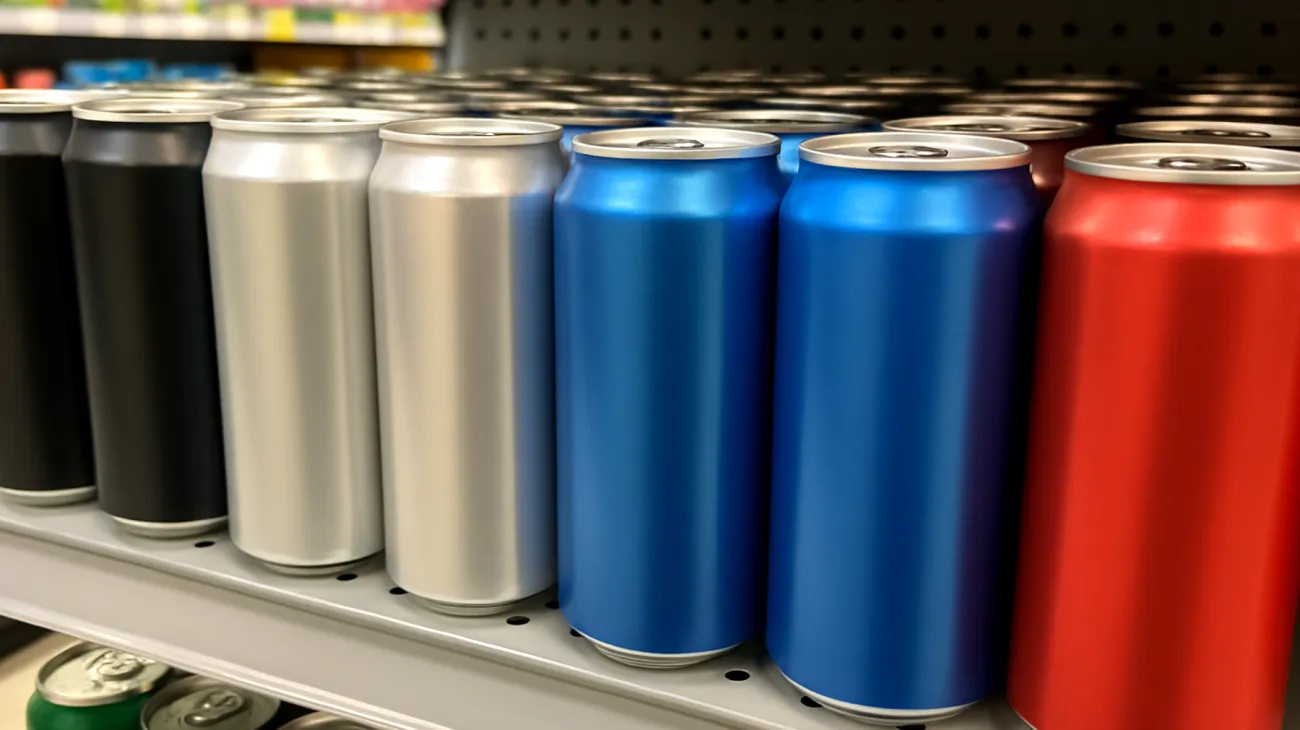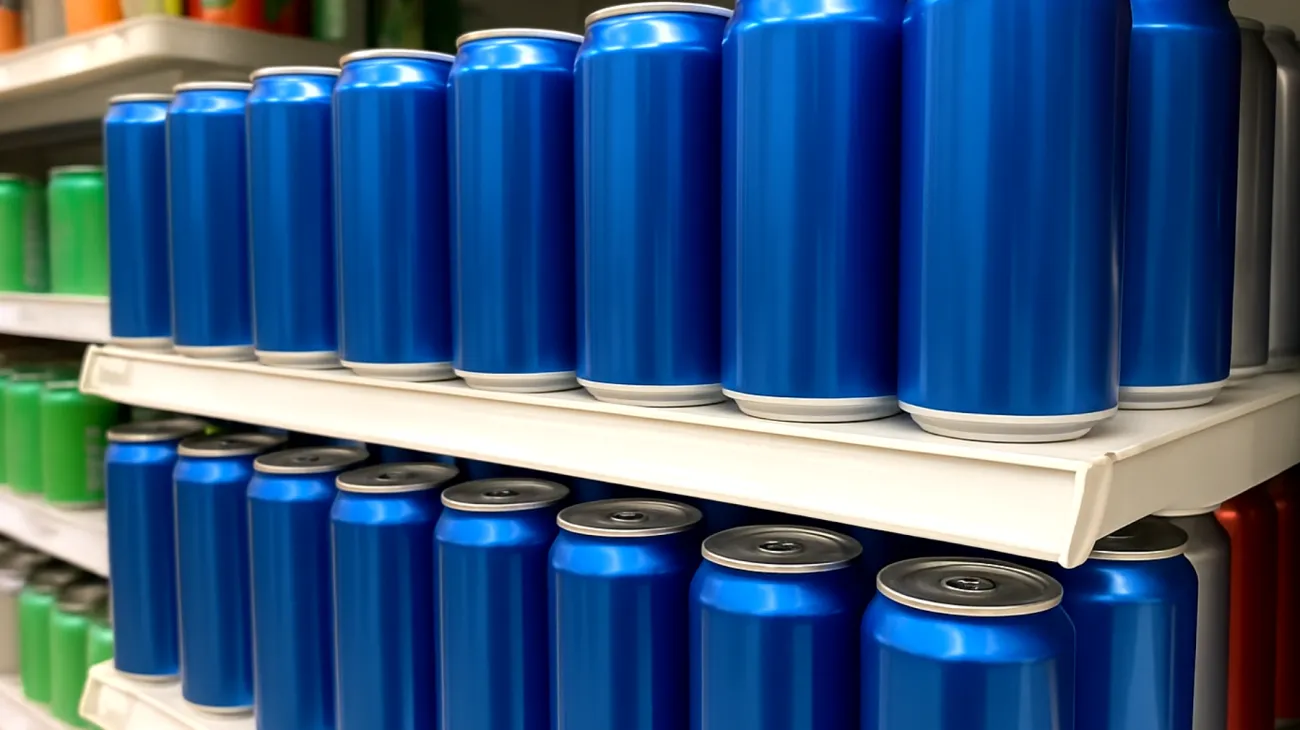Walking through the beverage aisles of UAE supermarkets, you’ll notice a growing trend that demands attention from every parent and guardian. Energy drinks with vibrant packaging and enticing flavors are widely available, including those appealing to young consumers. These caffeinated beverages are increasingly marketed in ways that can obscure their true nature and potential risks, especially for minors.
The Deceptive Language Behind Energy Drink Marketing
The terminology used to market these highly caffeinated beverages has evolved into a sophisticated web of consumer manipulation. While the term “energy drink” remains common, manufacturers employ creative phrases such as “performance beverages,” “vitality boosters,” and “sports enhancement drinks.” This linguistic strategy serves a calculated purpose: to blur the lines between energy drinks—products containing significant amounts of caffeine and other stimulants—and genuine sports drinks, which are typically intended for hydration and electrolyte replacement.
These naming strategies can mislead parents about product safety and nutritional value. Studies highlight that parents often misjudge products labeled with terms like “natural performance drink” or “vitality boost,” incorrectly assuming they are safe for children due to the absence of the explicit “energy drink” label. When a beverage is marketed as a “natural performance drink,” it may still contain caffeine concentrations generally ranging from 50mg to 300mg per serving, yet parents may inadvertently purchase products entirely unsuitable for their children’s consumption.
Understanding What Energy Drinks Actually Contain
Behind the appealing marketing terminology lies a concerning cocktail of stimulants and additives. Energy drinks typically contain a mix of caffeine, taurine, guarana, B-vitamins, and significant amounts of sugar or artificial sweeteners. The hidden ingredients often include caffeine levels equivalent to several cups of coffee, taurine as an amino acid additive, guarana extract that provides additional stimulant effects not always clearly labeled as another caffeine source, sugar content exceeding 35 grams per can, and B-vitamins in amounts surpassing recommended daily allowances.
Sales terminology often highlights attributes like “vitamin-enriched” or “naturally energizing,” but these descriptions do not reflect the presence of high caffeine and sugar content that poses genuine health concerns for young consumers.
How Misleading Sales Denominations Impact Consumer Decisions
Published research in the Gulf region and internationally finds that parents and adolescents frequently fail to correctly identify energy drinks when alternative marketing terms are used. According to a 2019 cross-sectional survey in the UAE, 46% of adolescents and 39% of parents did not recognize energy drinks when masked by alternate sales denominations. This widespread misidentification has serious implications for child health and safety.
The confusion intensifies when these products appear in supermarket sections alongside legitimate sports drinks and fruit juices. Strategic placement of these products alongside electrolyte beverages and juices in stores further contributes to confusion and inadvertent purchases of inappropriate products by parents. Aggressive digital marketing plays a significant role in targeting young consumers through appealing visuals and messaging that downplays potential health risks.
The Psychological Impact of Marketing Language
Marketing terminology is deliberately chosen to target psychological motivation. Studies and systematic reviews confirm that labels such as “focus enhancer” and “athlete’s choice” can increase perceived appropriateness and desirability, particularly among youth and their parents. Research on labeling and youth-targeted marketing reports that such language exploits parental aspirations for their children’s academic and athletic performance, sometimes resulting in increased purchase intent.

This targeted linguistic strategy transforms legitimate concerns about child development into marketing opportunities for inappropriate products, capitalizing on parental desires to provide competitive advantages for their children.
Age-Inappropriate Marketing Through Sales Denominations
Energy drinks are marketed in the UAE with terms such as “junior energy” or “teen performance,” yet these formulations typically do not differ in stimulant content from those meant for adults. The World Health Organization and other health authorities have flagged these marketing practices as potentially harmful, especially since children are more susceptible to the adverse effects of caffeine and excess sugar.
The UAE’s consumer protection laws restrict advertising and sale of energy drinks to minors, but enforcement is challenging when labeling is ambiguous. Products may technically comply with local regulations while employing misleading sales denominations that obscure actual risks and circumvent the spirit of these regulations.
Protecting Your Family Through Smart Shopping
Savvy consumers can protect their families by looking beyond marketing terminology and examining actual product compositions. Effective identification strategies include examining ingredient labels for caffeine, taurine, guarana, and B-vitamin content, noting warning labels about caffeine content regardless of product name, and checking the declared serving size since labels may only show nutrition data per half can instead of full contents.
Pay particular attention to serving size manipulations, where manufacturers list nutritional information for half-can servings while marketing full cans as single portions. This practice makes caffeine content appear more moderate than actual consumption delivers. When encountering unfamiliar products marketed for performance enhancement, consider consulting with pharmacists or healthcare professionals about their appropriateness for different age groups.
Reading Between the Lines of Product Labels
Effective consumer protection requires understanding that sales denominations operate independently from nutritional facts and ingredient disclosures. While manufacturers may call their product a “natural wellness drink,” the fine print reveals formulations identical to traditional energy drinks with high stimulant content.
Moving Forward as Informed Consumers
UAE authorities have introduced guidelines for clearer stimulant content disclosure on all beverage products, regardless of marketing terminology. Recent initiatives focus on requiring transparent disclosure of stimulant content regardless of product naming conventions. However, comprehensive implementation is ongoing, leaving individual vigilance essential for consumer protection.
The responsibility for protecting our families ultimately rests with each individual consumer. Developing awareness of how sales denominations can mislead, questioning marketing claims, and prioritizing ingredient analysis over attractive product names enables purchasing decisions that truly serve our children’s best interests. Your purchasing power represents the most effective tool for demanding honest, transparent marketing practices from beverage manufacturers, creating a marketplace that values consumer safety over clever marketing tactics.
Table of Contents

